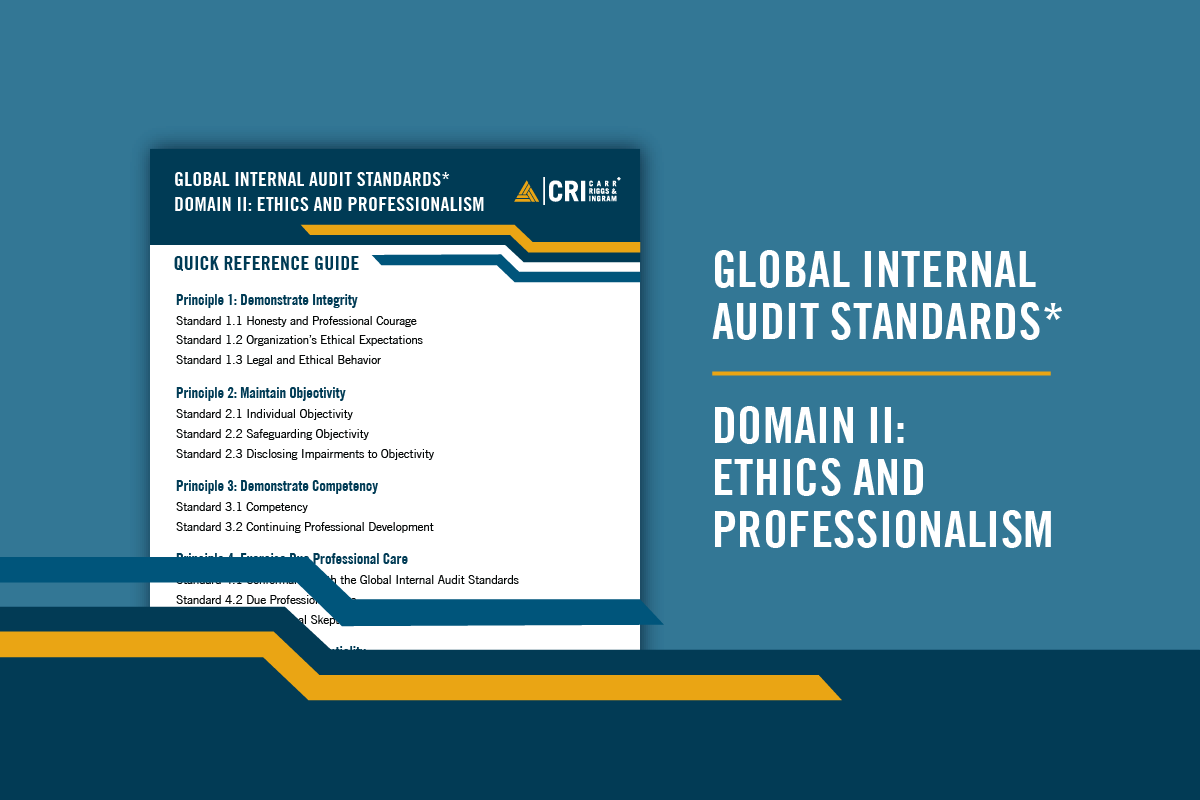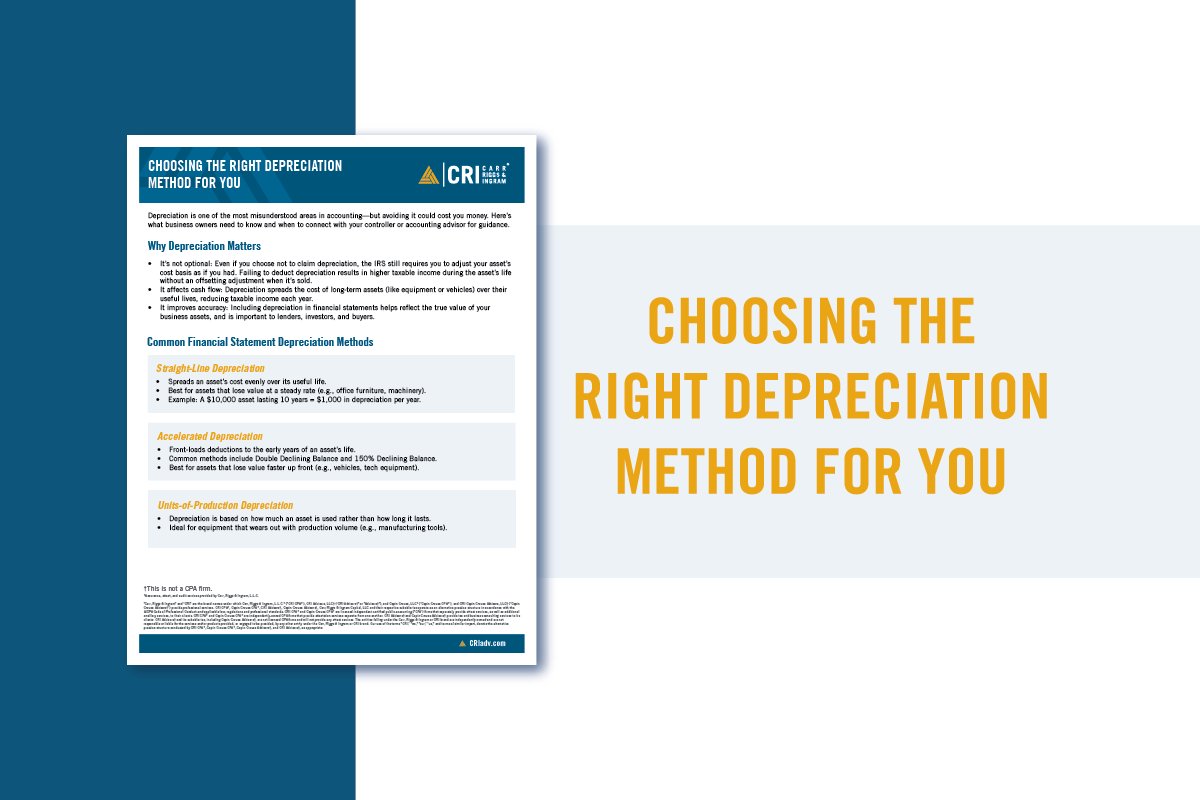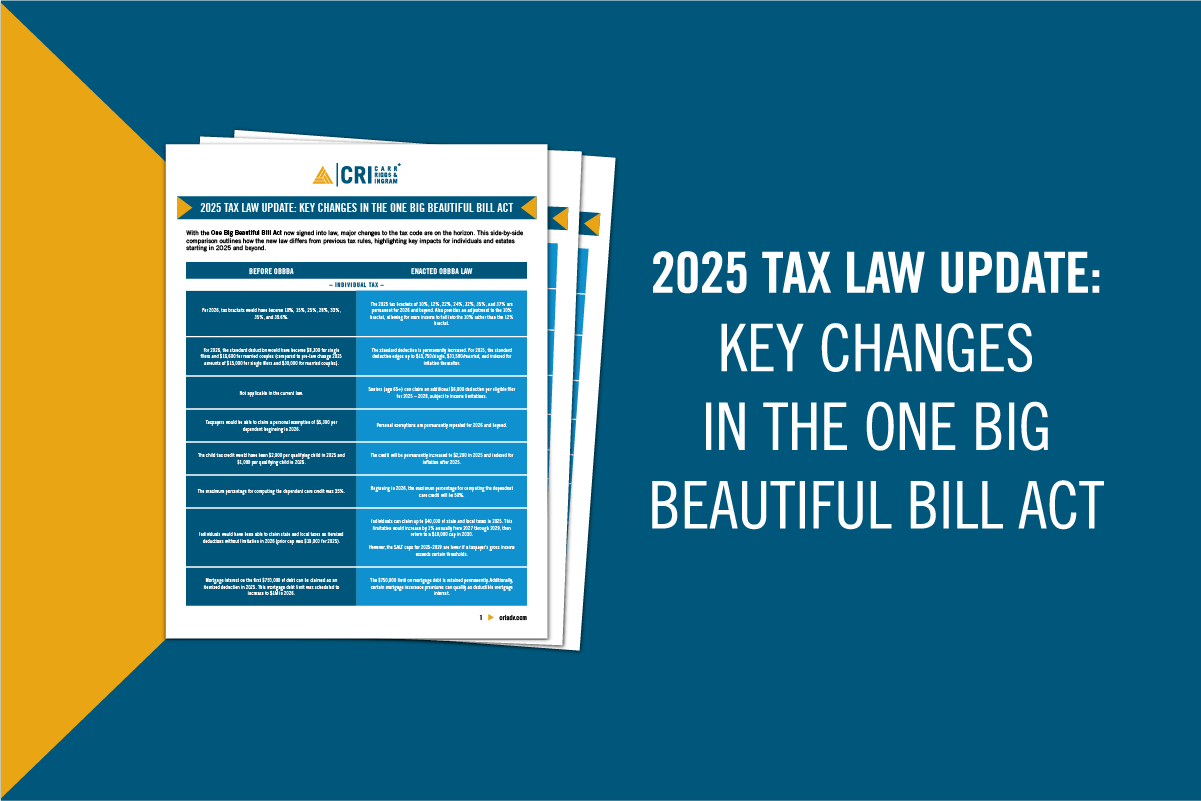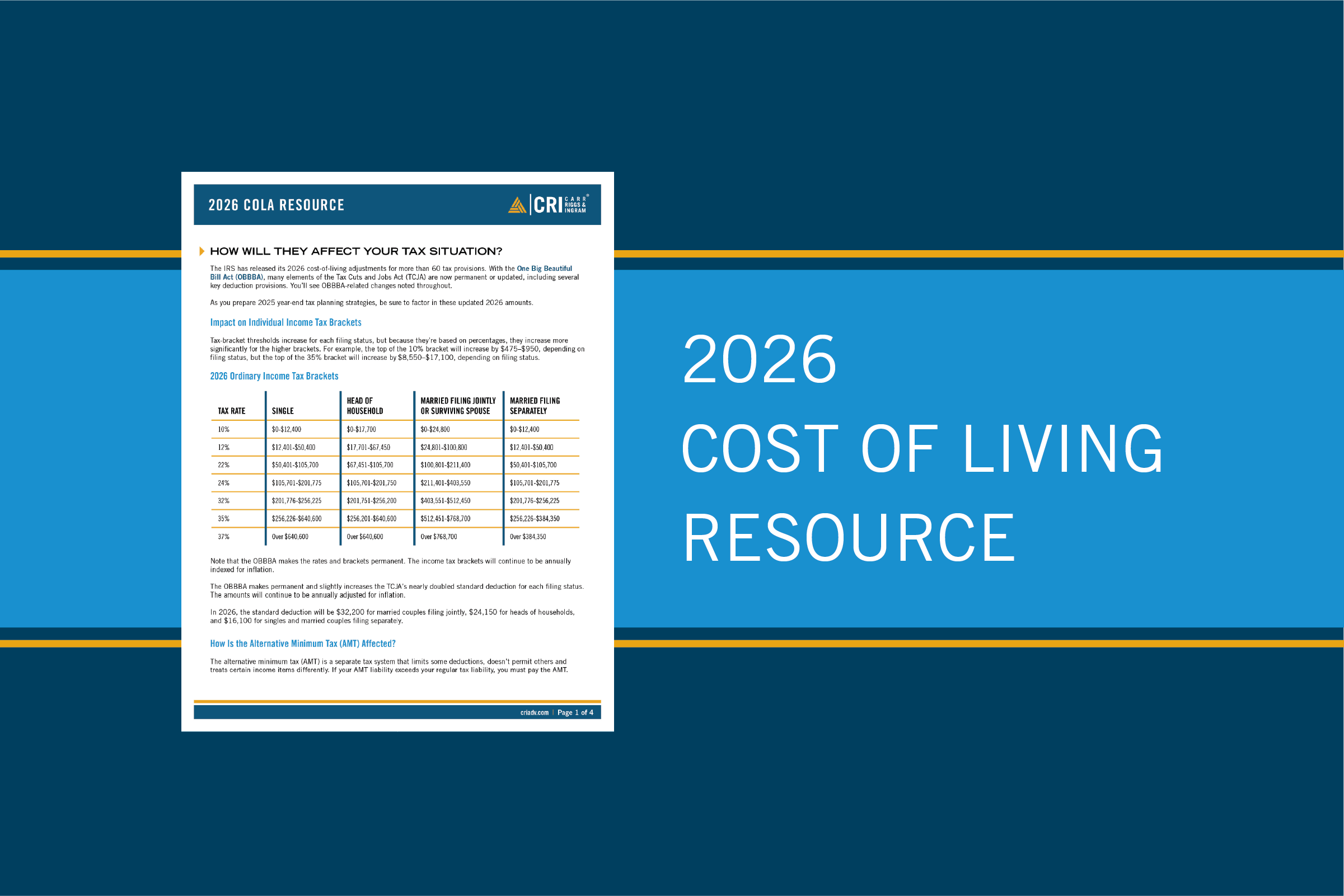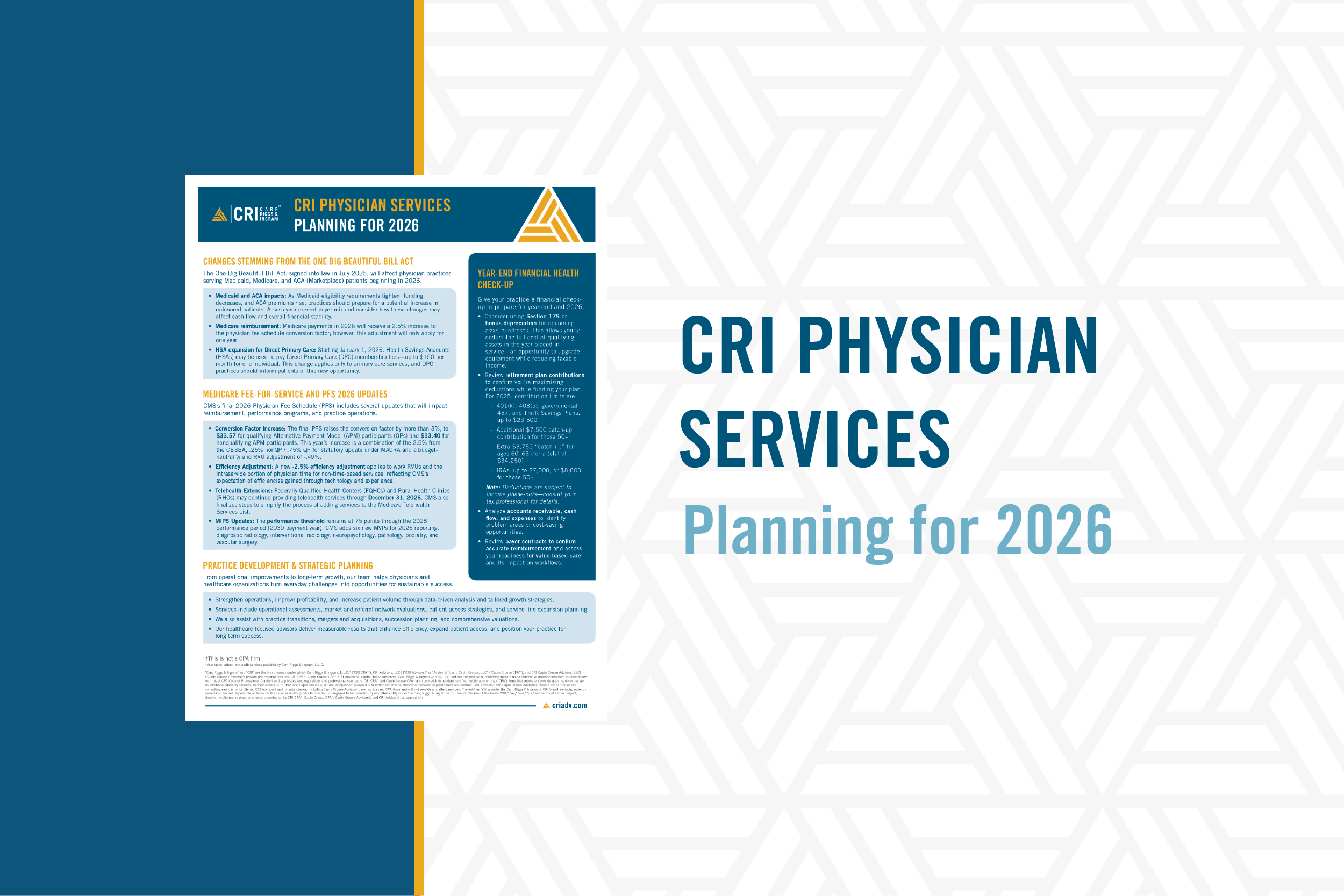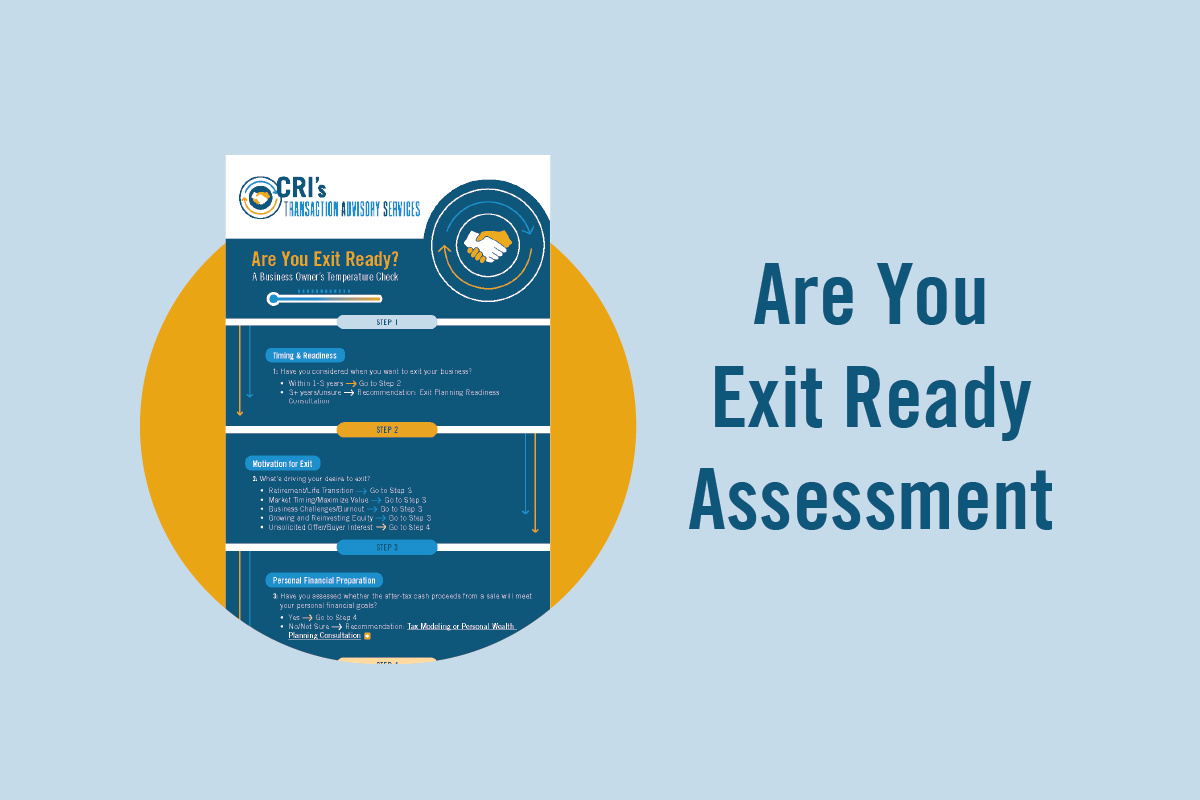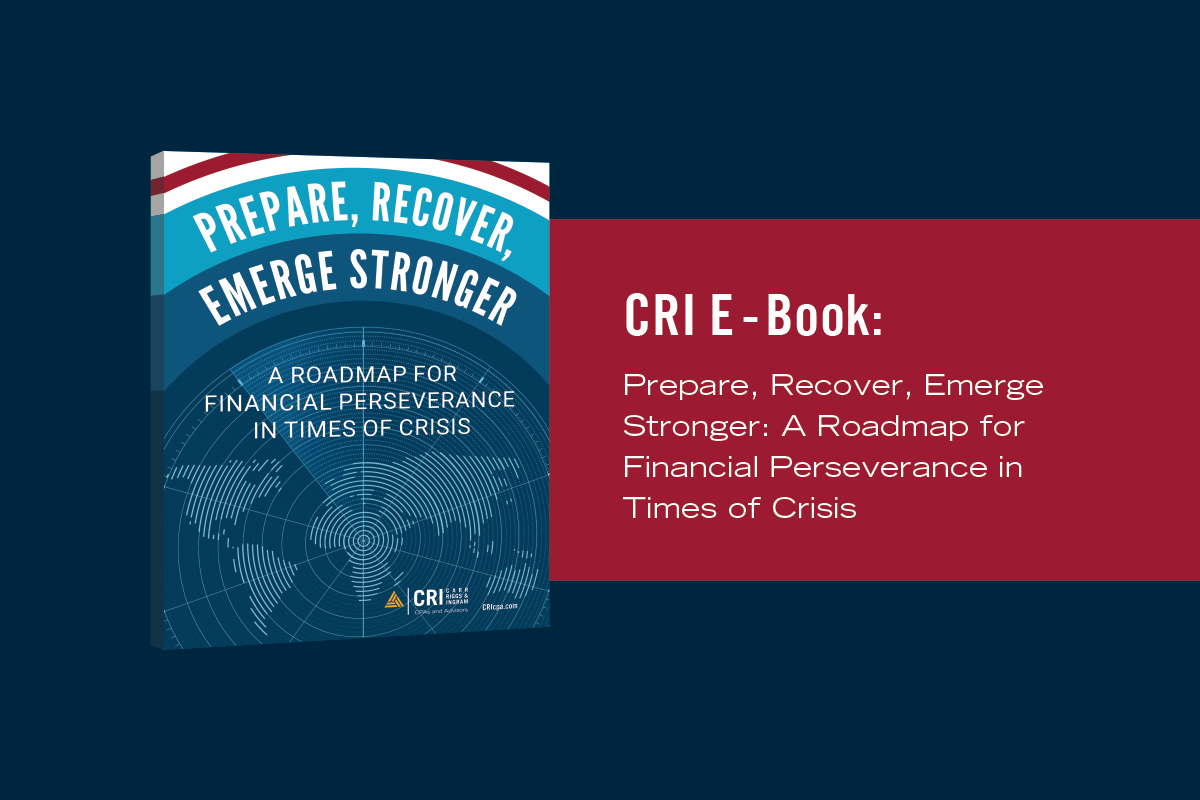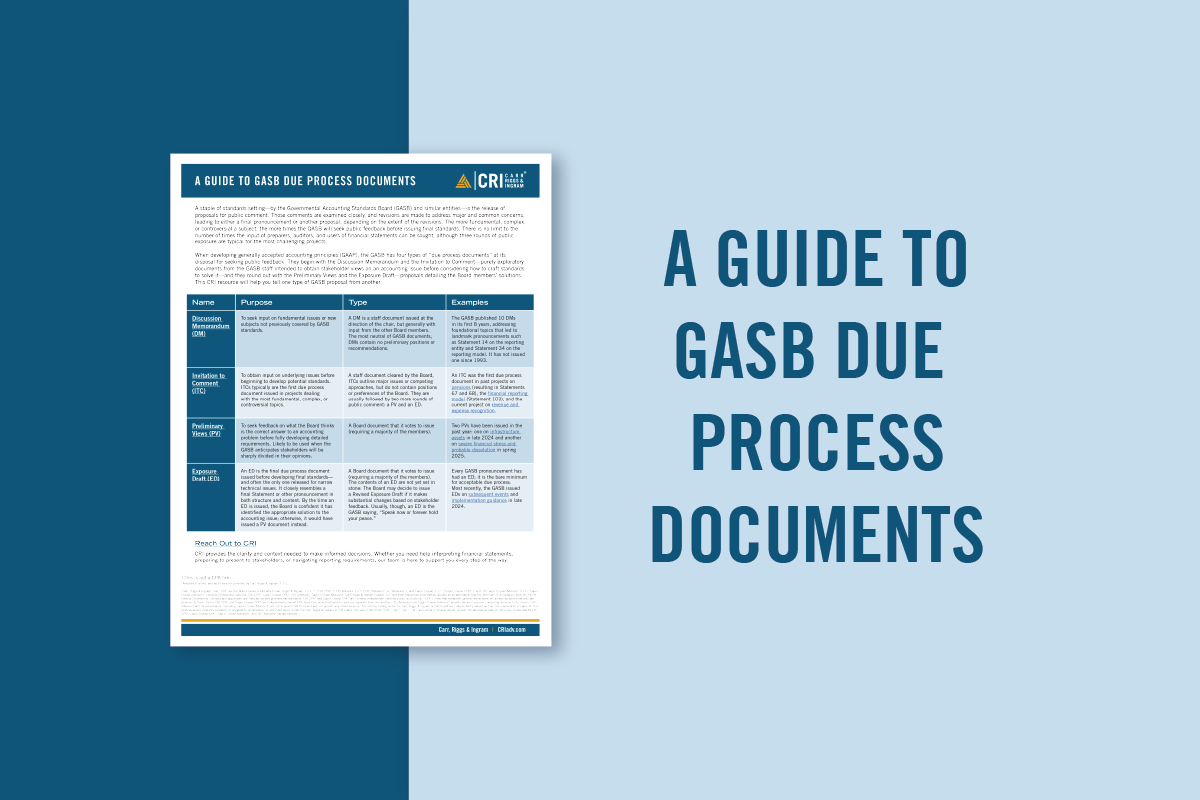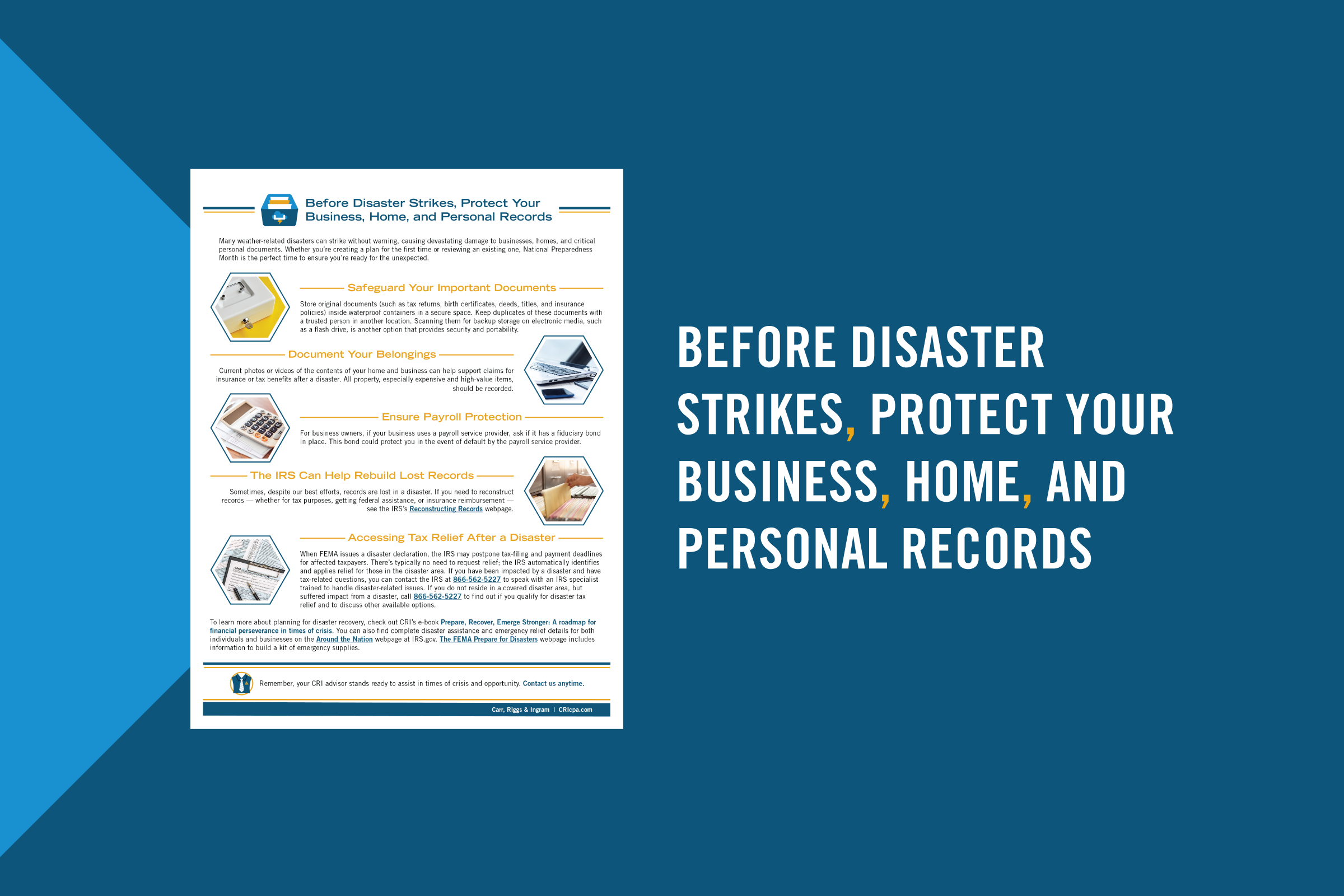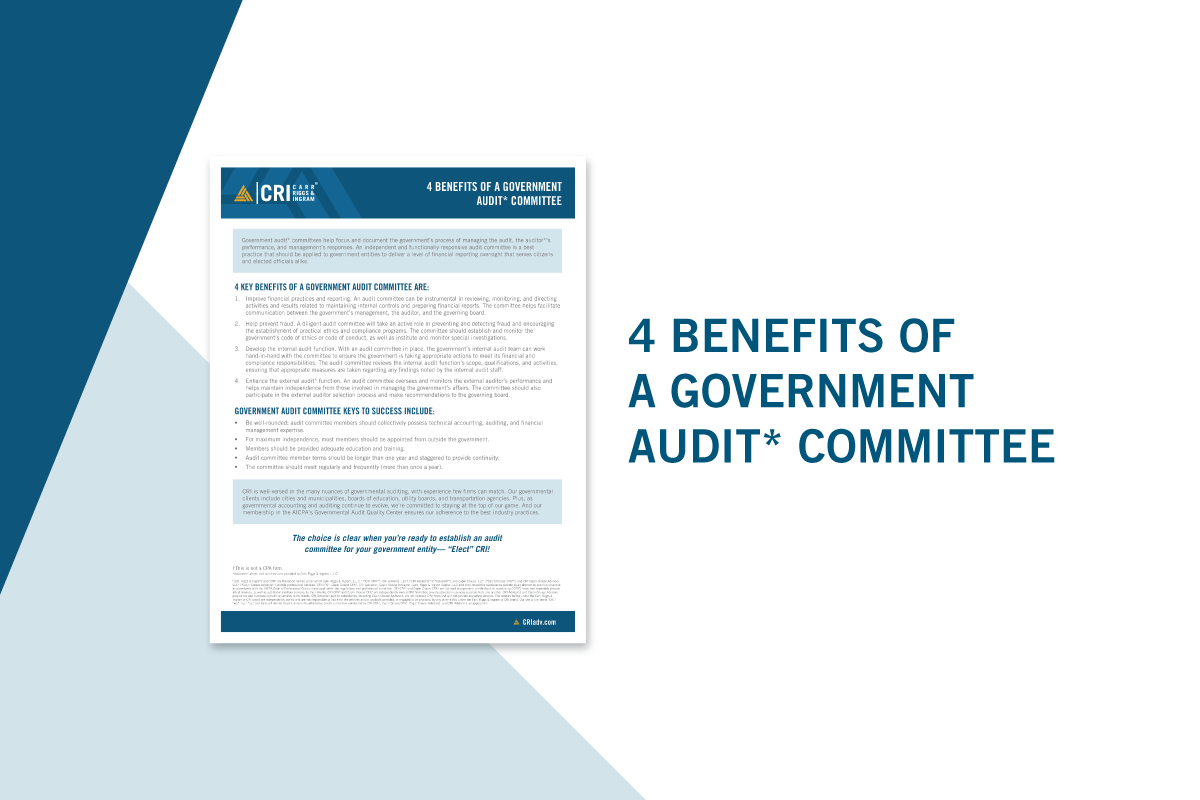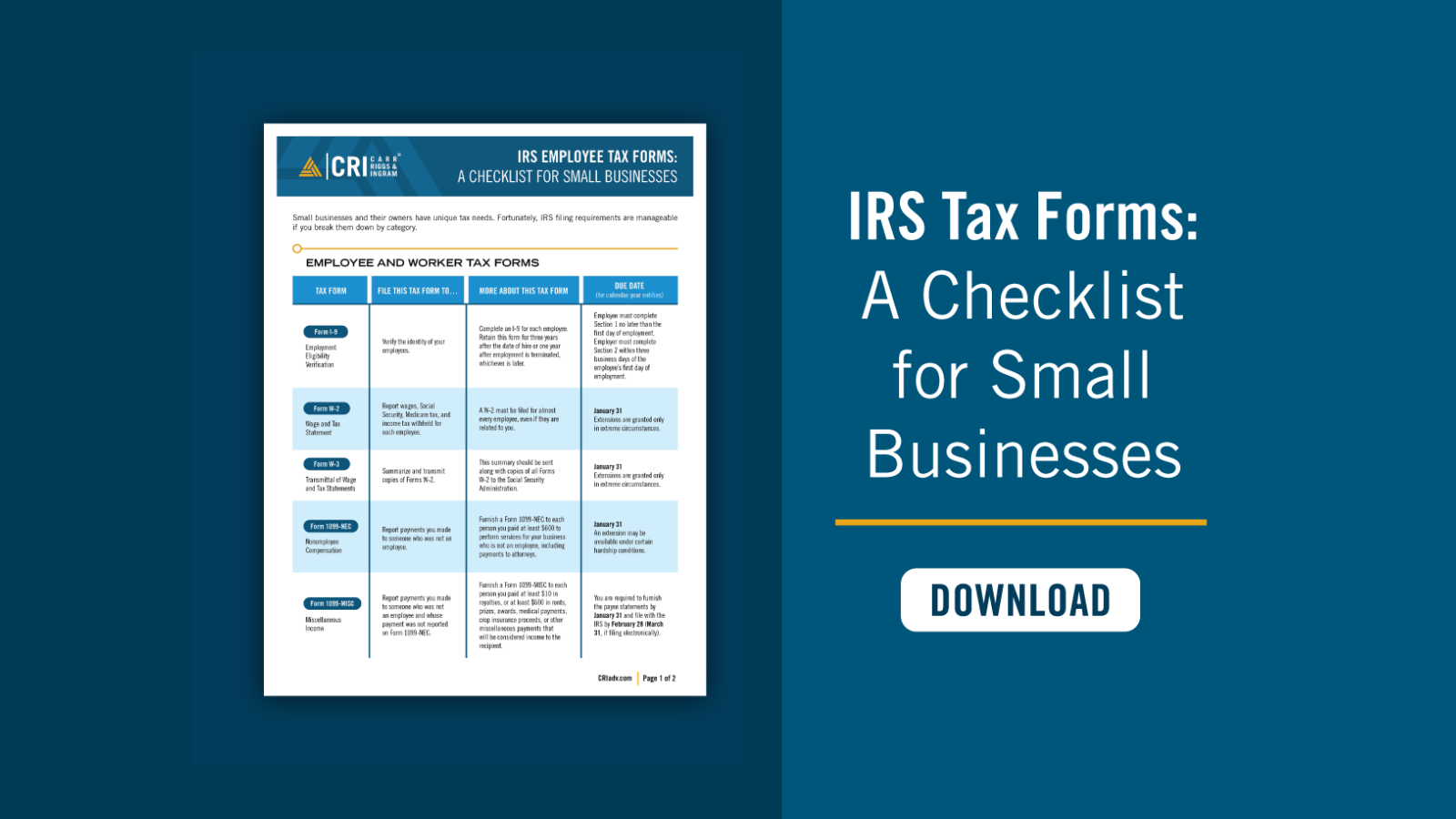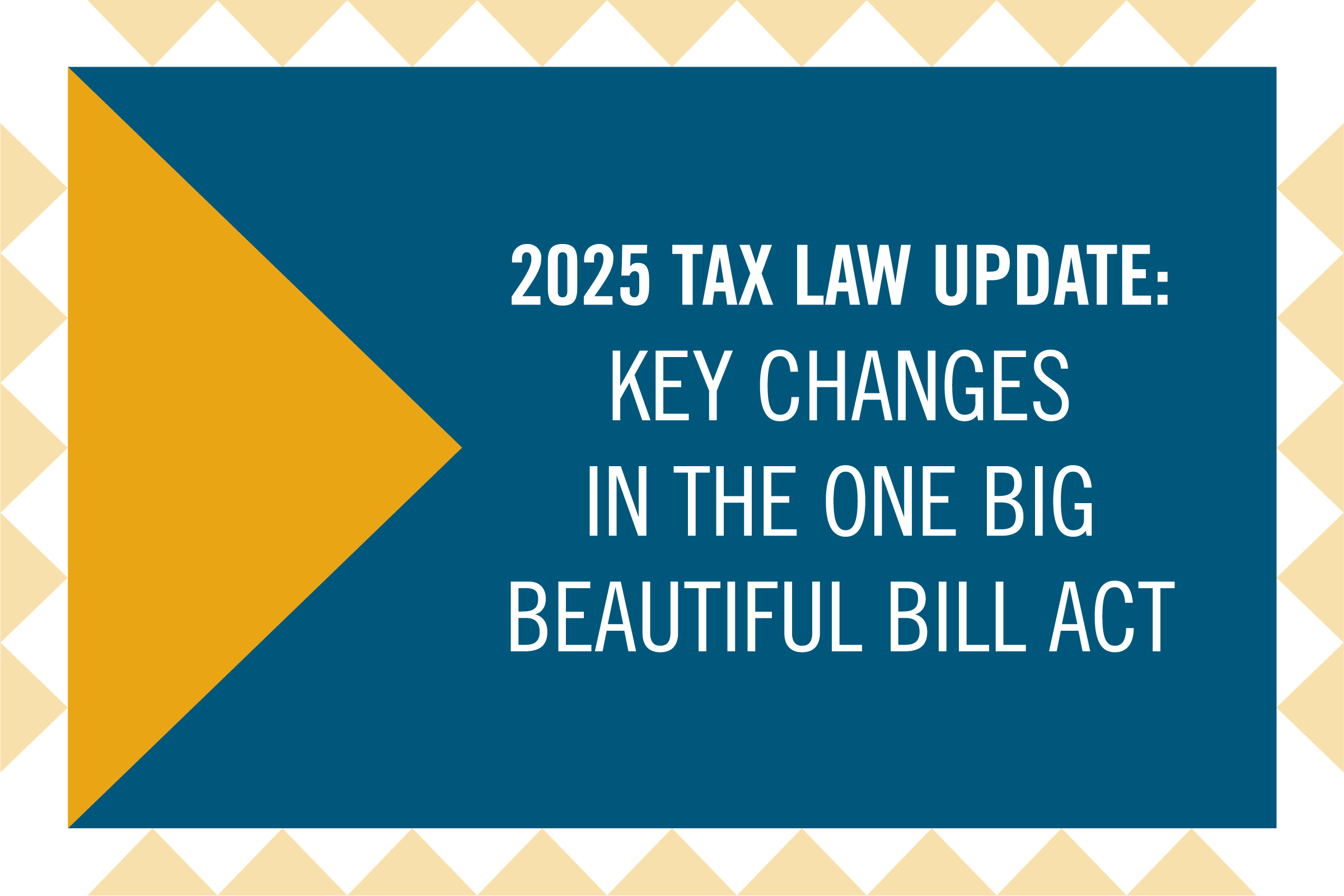Credit Risk Management in an Unpredictable Environment
- Contributor
- Rob Demonbreun
Feb 15, 2021
Businesses and individuals are entering 2021 with the hope of leaving the immense challenges of 2020 behind. However, the reality is that the risks that arose during 2020 will continue to be present for 2021. In fact, some of the unusual challenges we faced during 2020 will present risk management opportunities for the foreseeable future. One valuable lesson learned in 2020 is always to expect the unexpected. With that in mind, it is easy to see the importance of risk management. It is crucial to recognize that management's involvement in the risk process should be a focus for financial institutions through 2021 and years to come. Below are some key areas in credit risk management that financial institutions will want to consider during 2021.
Credit Risk Management
Regulatory Guidance. In response to the impending impact of the COVID-19 pandemic on financial institutions' asset quality, regulatory agencies issued a statement on March 22, 2020, that encouraged financial institutions to work prudently with borrowers. The statement described the regulatory agencies' interpretation of how current accounting rules apply to certain pandemic-related loan modifications.
On April 7, 2020, the regulatory agencies issued Interagency Statement on Loan Modifications and Reporting for Financial Institutions Working with Customers Affected by the Coronavirus (Revised). This revised interagency statement clarified the interaction between the March 22, 2020, interagency statement and Section 4013, Temporary Relief from Troubled Debt Restructurings, of the CARES Act signed into law on March 27, 2020. The revised guidance addressed the following areas:
- General safety and soundness considerations
- Accounting and reporting considerations
- Loan modifications both under and not under Section 4013
- Credit risk
- Regulatory capital
- Past due reporting
- Nonaccrual status and charge-offs
- Discount window eligibility
- Consumer protection considerations
On August 3, 2020, the regulatory agencies issued Joint Statement on Additional Loan Accommodations Related to COVID-19 to address concerns of financial institutions related to borrowers who were unable to resume contractual payments at the end of an accommodation due to continuing financial challenges. The regulatory agencies recognized that some financial institutions faced difficulties in assessing credit risk due to issues such as limited access to borrower financial data, pandemic event-induced covenant breaches, and difficulty analyzing the impact of pandemic event-related government assistance programs. The joint statement addressed the following areas:
- Prudent risk management practices
- Well-structured and sustainable accommodations
- Consumer protection
- Accounting and regulatory reporting
- Internal control procedures
With the revised guidance and joint statement, attention has been focused on loan modifications and resulting treatment as troubled debt restructurings (TDRs), past due reporting and nonaccrual, and charge-off status.
General Risk Management Practices
For loans that have received accommodations, credit risk should be separately identified, measured, and monitored by the financial institution on an ongoing basis. Performing these functions increases the likelihood of timely recognition of additional deterioration and potential loss exposures. As accommodations are made, the financial institution should reassess risk ratings based on current debt levels, current financial condition, repayment ability, and collateral. Effective management information systems and reports can help management understand the scope of loans that receive accommodations, types of initial and any additional accommodations provided, when the accommodation periods end, and the credit risk of potential higher-risk segments of the portfolio. Keeping the Board of Directors and Audit* Committee abreast of changing circumstances is also vital for an effective risk management process.
Appropriate Allowance for Loan and Lease Losses (ALLL) or Allowances for Credit Losses (ACL) Methodologies
Appropriate ALLL or ACL methodologies reflect all relevant and available information when assessing the collectability of cash flows, including changes in borrower financial condition, collateral values, lending practices, and economic conditions resulting from the pandemic. It may be difficult for a financial institution to accurately determine the collectability of some loans affected by the pandemic and may require more time to determine the effect on some borrowers' long-term ability to repay and assess the value of underlying collateral. Management of the financial institution should consider the impact of the pandemic on its ALLL or ACL process. Accounting principles and regulatory reporting requirements are an essential part of this process, and additional information should be considered as it becomes available.
Internal Control Systems
Quality assurance*, credit risk review, operational risk management, compliance risk management, and internal audit functions require consideration for loans under accommodation. Regarding credit risk, the following internal control functions should always be top of mind:
- Staff, including problem loan and collection personnel, are qualified and can efficiently handle expected workloads;
- Borrower and guarantor communications, and legal documentation, are clear, accurate, and timely, and in accordance with contractual terms, policy guidelines, and federal and state laws and regulatory requirements; and
- Risk rating assessments are timely, accurately, and appropriately supported.
The challenges we face during 2021 will likely be different from those weathered in 2020. While there will be risks to manage related to the pandemic, political transition, and economic, financial, and market turmoil, there are still unknown risks of which we are unaware. A financial institution that builds a robust risk management structure and proactively responds to existing and potential threats is a healthy financial institution. Staying abreast of current credit risk management topics and strategies is critical in an unpredictable environment. If your financial institution has any questions regarding these strategies, be sure to reach out to a CRI advisor for more information and guidance.




